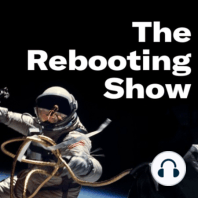39 min listen
How Skift survived Covid
ratings:
Length:
33 minutes
Released:
Mar 28, 2022
Format:
Podcast episode
Description
On this week’s episode of The Rebooting Show, I spoke to Skift CEO Rafat Ali. What I like about Skift is it goes narrow and deep on the business of travel while situating it within the broader context of the global economy and societal trends. Covid was a reminder that external events are out of your control and the best you can do is adapt to them. Nobody likes the painful decisions you have to make to ensure simple survival. Skift ended up cutting a third of its staff and saw revenue decline 40%.For Skift that meant shrinking its business, letting go and furloughing employees, and preserving cash to weather the storm. Skift used the pandemic to refit its business, casting off the expenses of offices and event venues, and building new high-margin products. Skift is more profitable now than it’s ever been. It has just crossed its employee count from pre-pandemic, even as Russia’s invasion of Ukraine, Covid outbreaks in Asia and a new Covid variant circulating Europe signal even more turbulence ahead. Some takeaways from our discussion:Apply a consumer lens to B2B. Modern B2B is as audience-focused and quality as consumer media. That means investing in design, quality reporting and writing, and outlook. Travel was historically broken into sectors – flights, hotels, cruises, meetings – but that’s not how consumers approached the category, so Skift took the POV of people, not vendors. Media and data make sense together… on paper. In media, the cliche “Uber for X” pitch is the “Bloomberg for X” pitch. Using publishing as a top of the funnel for a high-priced, recurring revenue data business is a business school case study. The problem: These are very different businesses to staff and run. Skift originally cast itself as a “travel intelligence company,” but ended up being a media company. Covid expanded the talent pool. Skift used the pandemic to become a permanently distributed company. As it has hired people back, of the 20 people brought on, only one has been based in New York City. That’s led to a great expansion of its talent pool, not to mention a lower cost base.Covid changed the client base. The travel industry was on mothballs for much of the pandemic, but Skift found that it was buoyed by the windfall realized by large tech platforms. Much of B2B media business models are driven by vendors, but the big tech platforms are where properties want to get for their stability and massive marketing budgets. Balancing the revenue portfolio. The goal for Skift’s revenue profile is to be evenly split among events, advertising and subscriptions. Going into the pandemic, subscriptions were lagging a category like events. Now, with advertising on a hot streak and subscriptions coming back, Skift has seen subscriptions rise to 20% of revenue.Check out The Rebooting Show on Apple or Spotify. Also, if you’re an Apple user, please leave a rating and review. Let me know what you think of the episode by hitting reply.Lean mediaA key part of primary-engagement media is getting the cost base right. Publishers often have to do so many things to make money that the expenses in the organization tend to go in many places other than the actual creation of content. Fixing that imbalance is key for building sustainable publishing brands. Manufactured growth vs organic growth
Released:
Mar 28, 2022
Format:
Podcast episode
Titles in the series (100)
How Protocol applies the Politico model to tech by The Rebooting Show
